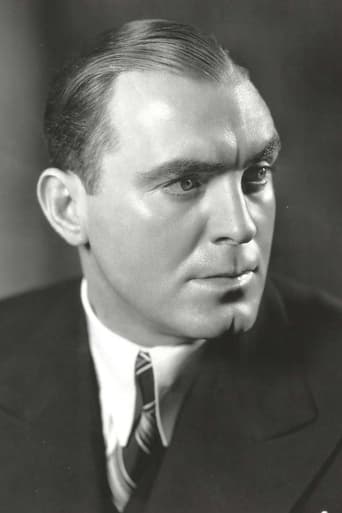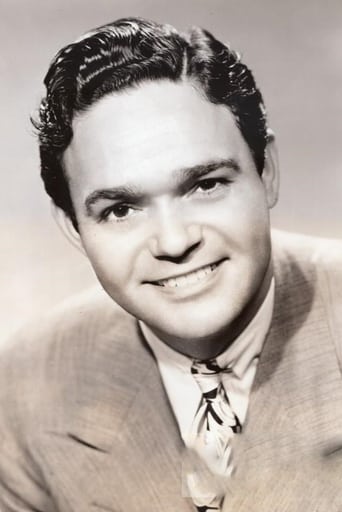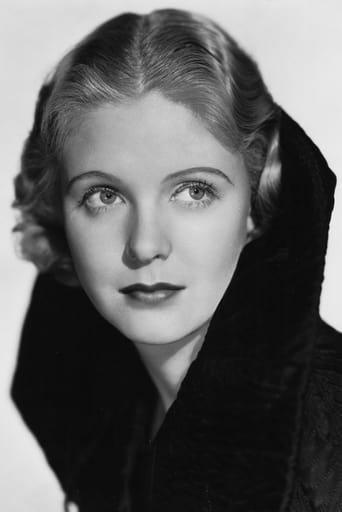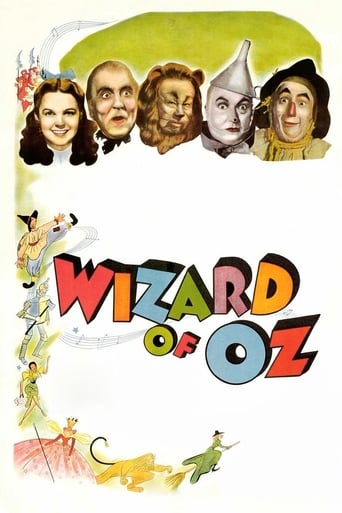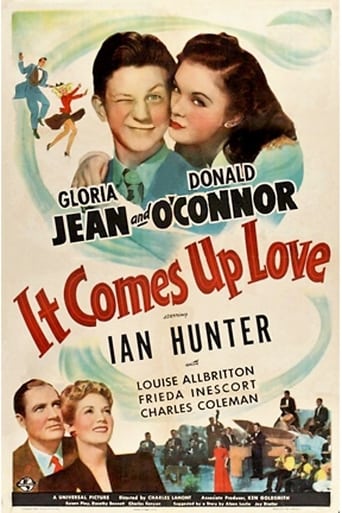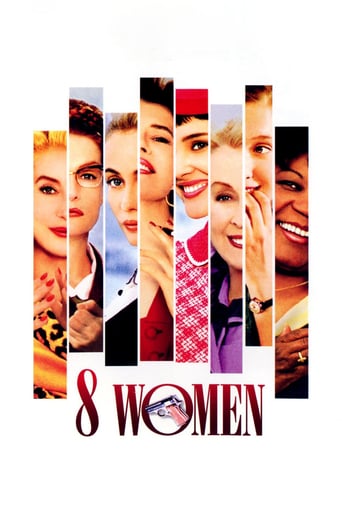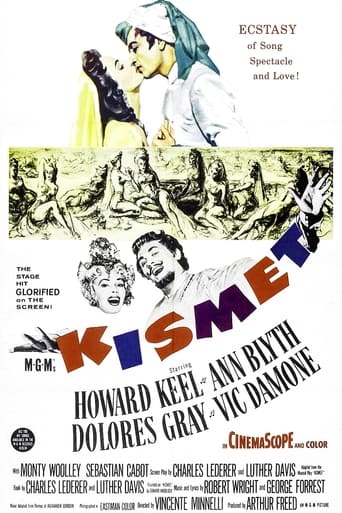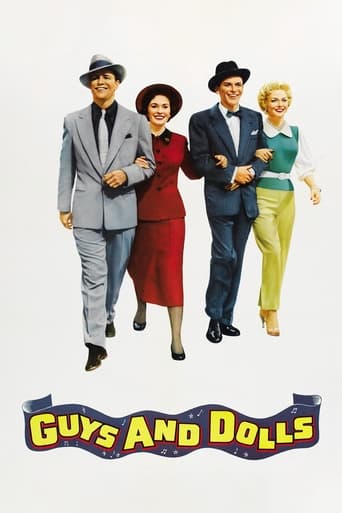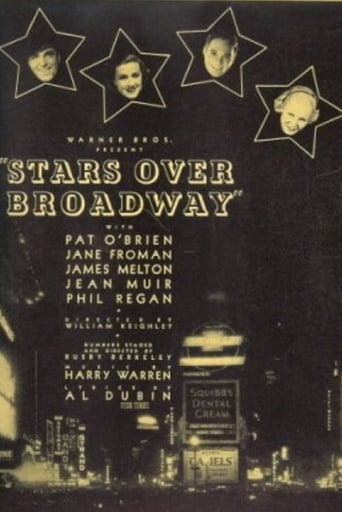

Stars Over Broadway (1935)
An aggressive agent turns a hotel porter into an overnight sensation.
Watch Trailer
Cast


Similar titles
Reviews
Perfect cast and a good story
Good story, Not enough for a whole film
Exactly the movie you think it is, but not the movie you want it to be.
It is a whirlwind of delight --- attractive actors, stunning couture, spectacular sets and outrageous parties. It's a feast for the eyes. But what really makes this dramedy work is the acting.
Pat O'Brien is a washed up talent manager who meets a singing hotel porter (James Melton) in "Stars Over Broadway," a 1935 film from Warner Brothers. The film also stars Jean Muir and Jane Froman.O'Brien is Al McGillevray, a broke manager, who, as he's contemplating suicide, hears a porter sing and decides to take him on. The tenor's stage name becomes "Jan King," and his rise to fame is a bit too fast. He starts to enjoy his social life and the accompanying alcohol more than the high notes. Adding to the problem is that Al has fallen for an ambitious young singer (Jean Muir) who wants him to manage her.O'Brien does a great job as a man trying to work out his life and what it is that he really wants. The surprise for me here was Jane Froman, whom I only knew from the film "With a Song in My Heart," in which she was portrayed by Susan Hayward. Froman is not only absolutely gorgeous, but her lush voice is equally beautiful (I did at least remember that she was a wonderful singer). In 1943, she was in a horrible plane crash and almost had to have her leg amputated, though she kept on entertaining. Why she wasn't featured in films more before her accident is beyond me.The career trajectory of the tenor in the film actually matches James Melton's, minus the booze. He started out as a popular singer, but during the Depression, his kind of high, bright singing voice went out of style and was replaced by the more baritone sounds from the likes of Bing Crosby and Russ Columbo. Already classically trained, Melton returned to his operatic roots, eventually making his debut at the Metropolitan Opera as Tamino in "The Magic Flute." Tamino would be a signature role for him at the Met, and he also performed the tenor roles in Lucia, Don Giovanni, Mignon, La Traviata, and Madama Butterfly during his 8 years there. Melton continued to have a great career later in concerts and clubs. He was very pleasant looking and a nice personality, so it's no wonder he was picked up for films, however briefly. In the movie, he sings several songs that were mainstays of his concerts as well as "Celeste Aida," in which he sounds fabulous.Entertaining, and if you like beautiful singing, you'll enjoy "Stars Over Broadway."
"Stars Over Broadway" (Warner Brothers, 1935), directed by William Keighley, introduces two new personalities to the screen, but to short-lived movie careers, Metropolitan opera tenor James Melton, and radio vocalist, Jane Froman, the latter best known as the subject matter for the 1952 biography "With a Sing In My Heart" starring Susan Hayward. In spite of Froman's name listed second in the list of players, she has little to do. The story mostly revolves around the third-billed Melton while Pat O'Brien, whose name heads the cast, returns to familiar territory as a hard-working talent scout promoting a new singing discovery, a role he has done several times with resident crooner, Dick Powell, most recently in "20 Million Sweethearts" (1934). While Melton doesn't measure up to the popularity of Powell, his singing surpasses the typical rise and fall show-biz story.The scenario begins at New York City's Madison Square Garden where Al McGillevray (Pat O'Brien), a down-and-out agent in desperate need of cash yet refusing job charities from friends. After a gathering with newspaper reporters at Danceland where he is told he's all "washed up," Al returns to his hotel room with the intentions of ending his life. At that very moment he takes his gun from the drawer, Al encounters Jan Linzimski (James Melton), a singing porter with a pleasing voice and immediately abandons his suicidal tendencies to promote his latest discovery, renamed Jan King. Al sacrifices everything he has for the sake of Jan, working odd jobs and long hours to help pay Senior Minotti (William Riccardi) for his singing lessons, placing him in auditions at talent shows and radio programs where he sings contemporary songs instead of his major preference, opera. In time, Jan makes it to the top of the charts, but with success comes failure after teaming with Joan Garrett (Jane Froman), a singer who leads him to wild parties and heavy boozing causing serious damage to his voice and performances that puts an end to his career on Broadway. Feeling somewhat responsible for his setback, Al makes every effort to bring Jan back to his senses regardless of their serious argument that put an end to their partnership. Adding to Al's worries is Norma Wyman (Jean Muir), a young hopeful from Connecticut wanting a chance at a singing career herself, but because he doesn't want this nice girl to end up like Jan, Al does his best to discourage her while she makes every attempt to succeed, in spite of setbacks and tragedy.Other featured players include Frank McHugh as "Offkey" Cramer, a song plaguer; Marie Wilson as Molly, a telephone operator and Cramer's love interest; and Frank Fay as the sarcastic radio talent show master of ceremonies whose big encounter of the evening being a group of children called "The Morgan Family." Appearing in smaller parts are Paul Porcasi, Eddie Kane, E.E. Clive, and heavyweight boxing champion, Jack Dempsey, playing himself.The motion picture soundtrack, with new songs by Harry Warren and Al Dubin include: "Carry Me Back to the Lone Prairie" by Carson J. Robison (sung by James Melton); Guiseppi Verdi's "Aida" (Melton); "Open Up Them Pearly Gates" (sung by "The Morgan Family"); "You Let Me Down" (sung by Jane Froman in a torch song manner); "Coney Island" (sung by quartet); "Where Am I?," "Where Am I?" (both sung by Melton); "At Your Service, Madame" (with Jane Froman, Melton and male chorus); "Ave Maria" (sung by Jean Muir) by Franz Schubert; and "Aida" (finale with Melton).While Bobby Connolly and Busby Berkeley are given joint collaboration credit as dance directors, only the eight minute "At Your Service, Madame" survives as its sole production number play enacted entirely in song. "September in the Rain" is often credited among the list of songs in STARS OVER Broadway, but is non-existent in the final print. It's reportedly a lavish scale dance number supervised by Berkeley that was either abandoned prior to filming or deleted upon completion.In spite of occasional revivals on cable television's Turner Classic Movies since its premiere in 1994, "Stars Over Broadway" remains a forgotten item among the list of 1930s Warner Brothers musicals. Whenever it does turn up, it's usually part of TCM's tribute to either Busby Berkeley or tune-masters, Warren and Dubin. Of the three Warners musicals to feature Melton, "Stars Over Broadway" showcases him to best advantage, especially the singing category, but the screenplay, reminiscent to those used in early sound musicals or those produced at MGM whenever its turns dramatic, lacks strength or high points needed to make this something memorable. While Melton and Froman didn't fare well as screen celebrities of Hollywood, they obviously scored better individually whether at the Metropolitan, radio, television, or as stars over Broadway. (***)
JAMES MELTON was a great tenor who never had much of a movie career and JANE FROMAN's fate in a plane crash made it impossible for her to pursue a career in films. She's very lovely and has a warm, appealing contralto voice. Melton, despite the fine pipes, lacks the charisma of a movie star in his role as a porter discovered by PAT O'BRIEN and turned into a successful radio star.He handles his singing chores with professional ease but there's not much to be said about his bland acting. It's another story about the discovery of a new singing star while his manager makes personal sacrifices for the sake of new talent. FRANK McHUGH and MARIE Wilson offer some comedy support (not enough), and JEAN MUIR is colorless in a minor role as an aspiring singer who catches O'Brien's eye.Melton's quick rise to stardom is too much for him and he has to be straightened out by manager O'Brien and friends when his drinking gets out of hand. The story limps toward a dramatic conclusion, but it's no use. None of it is the least bit convincing and the only lasting impression is made by JANE FROMAN, graceful and charming in a brief role.Melton would return to the Metropolitan Opera and concert engagements, making another rare appearance in MGM's Technicolored ZIEGFELD FOLLIES OF 1946, singing an aria from "La Traviata" and continuing success on the stage of opera houses and occasional TV appearances on shows like "The Bell Telephone Hour"--but the movies never turned out to be his medium and he never made the sort of impression in operatic roles that other operatic singers did (like NELSON EDDY or MARIO LANZA).
This begins with failed agent Pat O'Brien planning his suicide. A porter in his building catches his ear with his cowboy song. Could this be the new star to make his name and fortune? The porter is James Melton, who soon is taken to an operatic vocal coach presciently named Menotti. Menotti sees him as someone who could be a star at the Met with five years of training and Melton's "Celeste Aida" is sung in a fine tenor.O'Brien wants quick results, though, and betrays him, making him a more popular-style singer who can rake in the bucks. He does and stardom goes to his head but he takes to the sauce, betraying O'Brien in return.This is not the first time I've seen O'Brien in a role that suggests gay or closeted gay feelings. The reconciliation between these two is strange indeed for a scene between two men in a mid-thirties movie.O'Brien wants to make a star of Jean Muir, too, but Menotti hears her "Ave Marie" sung in church and doesn't think she has the goods. She and O'Brien end up together but the movie is really about his and Melton's characters.It is dark and quite elegant, a touching movie whose title has little to do with it and is misleading. Perhaps O'Brien smiles once but if so, it is the exception rather than the rule. His performance is subdued and he seems beaten down.


